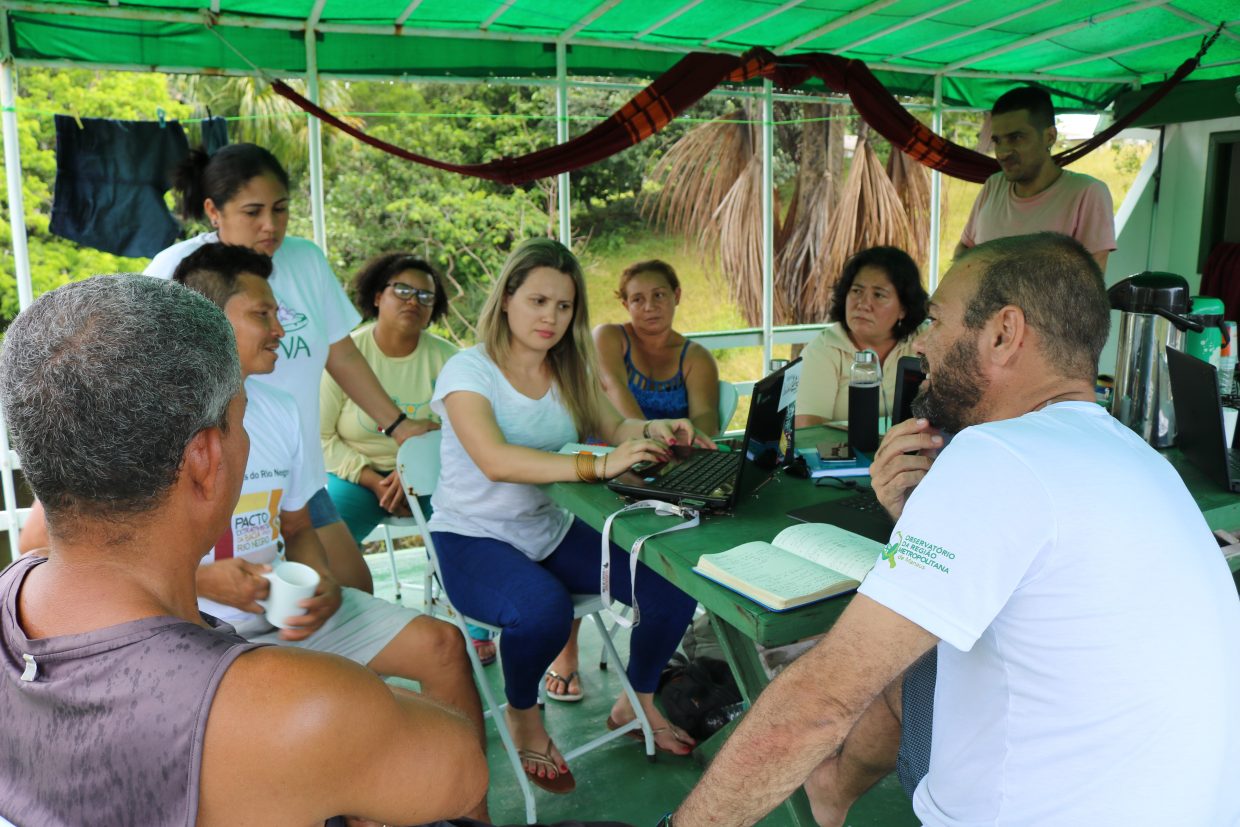
Over the past few decades, an extensive and diverse system of protected areas has been created in the Brazilian Amazon. In parallel to this geopolitics of conservation, the federal and state governments have implemented a set of strategies and public policies aimed at regional economic development. These policies usually conflict with socioenvironmental conservation initiatives, such as the construction of hydroelectric dams, major infrastructure projects or the unplanned urbanization of Amazonian cities.
In this context, FVA created the “Geopolitics of Conservation” program, which has the mission of generating, systematizing and making available relevant knowledge able to influence public policies and support decision-making processes related to territorial management in the Amazon. The program works especially in the scales of river basins, protected areas, municipalities and other officially recognized territories, such as the Lower Rio Negro Mosaic of Protected Areas and the Manaus Metropolitan Area (RMM).
- Development of analysis and studies in the areas of biology, geography, geoprocessing, among others, to support territorial management at different scales;
- Development of monitoring and geographic information systems for decision making (SiMUR and Risk System);
- Social environmental studies to support public policies and sustainable development projects;
- Articulation and strengthening of networks, committees and councils for the improved participation of civil society organizations relevant to Amazonian territorial management (Mosaics of Protected Areas, Watershed Committees, State and municipal Environment Councils, Conservation Units Councils, etc.);
- Training and technical support for public managers.
